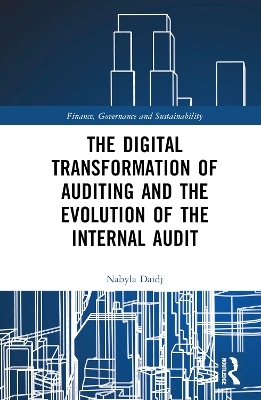
The Digital Transformation of Auditing and the Evolution of the Internal Audit
Seiten
2022
Routledge (Verlag)
978-1-032-10391-4 (ISBN)
Routledge (Verlag)
978-1-032-10391-4 (ISBN)
The main objective of this book is to provide both academics and practitioners with a global vision of the evolution of internal auditing in a fast-changing business landscape driven by digital transformation. The book also investigates the impact of the COVID-19 pandemic on internal auditing.
The main objective of this book is to provide both academics and practitioners with a global vision of the evolution of internal auditing in a fast-changing business landscape driven by digital transformation.
Digital transformation has been first associated with the emergence and the development of new technologies (artificial intelligence, blockchain, cloud computing, data analytics, predictive analytics, robotic process automation, IOT, drones etc.). Beyond the technological dimensions, this transformation has several impacts on businesses, organizations and processes and raises several questions for auditing activities. This book explores how digitalization not only has an impact on the audit environment, but also on internal audit practices and methodologies, information technology (IT)/information system (IS) audit, IT governance and risk management.
The auditing profession also has to face the same challenges. Auditors should develop new skills. To continue to provide high quality service in such an environment, the methodologies, the process and the tools used for conducting an audit have progressively changed from those applied to the traditional audit. Internal audit, as a key strategic function, must evolve too.
Finally, the book also investigates the impact of the COVID-19 pandemic on internal auditing. The author highlights the need for a new vision and renewed forecasting tools. The post-COVID-19 business and corporate world has changed. Internal audit, as a key strategic function, must evolve too.
The main objective of this book is to provide both academics and practitioners with a global vision of the evolution of internal auditing in a fast-changing business landscape driven by digital transformation.
Digital transformation has been first associated with the emergence and the development of new technologies (artificial intelligence, blockchain, cloud computing, data analytics, predictive analytics, robotic process automation, IOT, drones etc.). Beyond the technological dimensions, this transformation has several impacts on businesses, organizations and processes and raises several questions for auditing activities. This book explores how digitalization not only has an impact on the audit environment, but also on internal audit practices and methodologies, information technology (IT)/information system (IS) audit, IT governance and risk management.
The auditing profession also has to face the same challenges. Auditors should develop new skills. To continue to provide high quality service in such an environment, the methodologies, the process and the tools used for conducting an audit have progressively changed from those applied to the traditional audit. Internal audit, as a key strategic function, must evolve too.
Finally, the book also investigates the impact of the COVID-19 pandemic on internal auditing. The author highlights the need for a new vision and renewed forecasting tools. The post-COVID-19 business and corporate world has changed. Internal audit, as a key strategic function, must evolve too.
Nabyla Daidj (PhD, HDR) is Associate Professor of Strategic Management and Management Information Systems (MIS) at Institut Mines-Télécom Business School, Paris, France.
Introduction 1. An historical perspective of internal audit: the impact of digital transformation 2. Aligning internal audit with the organization’s strategy 3. IT governance, risks and compliance 4. The evolution of auditing methodologies 5. The evolution of IT/IS audit activities in the digital era: the impact of technology-enabled internal audit 6. The impact of the COVID-19 crisis on internal audit function and related activities
| Erscheinungsdatum | 29.09.2022 |
|---|---|
| Reihe/Serie | Finance, Governance and Sustainability |
| Zusatzinfo | 66 Tables, black and white; 11 Line drawings, black and white; 11 Illustrations, black and white |
| Verlagsort | London |
| Sprache | englisch |
| Maße | 156 x 234 mm |
| Gewicht | 550 g |
| Themenwelt | Wirtschaft ► Betriebswirtschaft / Management ► Marketing / Vertrieb |
| Wirtschaft ► Betriebswirtschaft / Management ► Unternehmensführung / Management | |
| Wirtschaft ► Volkswirtschaftslehre | |
| ISBN-10 | 1-032-10391-4 / 1032103914 |
| ISBN-13 | 978-1-032-10391-4 / 9781032103914 |
| Zustand | Neuware |
| Informationen gemäß Produktsicherheitsverordnung (GPSR) | |
| Haben Sie eine Frage zum Produkt? |
Mehr entdecken
aus dem Bereich
aus dem Bereich
Grundlagen marktorientierter Unternehmensführung : Konzepte, …
Buch (2024)
Springer Gabler (Verlag)
CHF 69,95
wie Sie durch konsequente Vertriebsorientierung im Wettbewerb …
Buch | Hardcover (2023)
Springer Gabler (Verlag)
CHF 83,95


